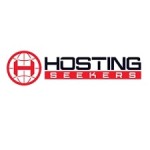In today's digital world, website security is paramount. Hackers constantly devise new methods to exploit vulnerabilities and compromise websites. Thankfully, cPanel offers a range of features to help you fortify your online presence.
Here are some essential cPanel tools you can utilize to keep hackers at bay:
1. Armor Up Your Login:
Strong Passwords: It all starts with a robust password for your cPanel login. Avoid using dictionary words, birthdays, or easily guessable information. Consider password managers to generate and store strong, unique passwords. Discover the Best Plesk Hosting Providers of 2024: Read Reviews, Find Deals, Compare Plans and Pricing before buying the Plesk Hosting for your business.
Two-Factor Authentication (2FA): Enable 2FA for an extra layer of security. This requires a secondary verification code from your phone or authenticator app in addition to your password, significantly reducing the risk of unauthorized access.
2 Manage User Permissions:
Principle of Least Privilege: Grant users only the minimum level of access they need to perform their tasks. This minimizes the damage if a hacker gains access to a user account.
Disable Unused Accounts: Delete or disable any cPanel accounts that are no longer required. Inactive accounts can be potential entry points for attackers.
3. Software Updates:
Keep it Current: Outdated software can harbor security vulnerabilities. cPanel offers tools to update your web server software (e.g., Apache, PHP) and other installed applications. Regularly update these to patch vulnerabilities and stay ahead of potential threats. Find the Top Rated Server Management Companies of 2024 at HostingSeekers.
4. SSL/TLS Certificates:
Encrypt Communication: An SSL/TLS certificate encrypts data transmission between your website and visitors' browsers. This safeguards sensitive information like login credentials and credit card details from prying eyes. cPanel offers tools to install and manage SSL/TLS certificates for your domain names.
5. Security Measures Against Malicious Scripts:
ModSecurity: cPanel allows you to enable ModSecurity, a powerful web application firewall. It monitors incoming traffic and can block suspicious requests that might be malicious script injections or hacking attempts.
6. File Permissions and Ownership:
Control File Access: File permissions dictate who can view, modify, or execute files on your server. cPanel's File Manager allows you to adjust permissions to ensure only authorized users can access critical files. Oudel.com provides the best full admin RDP, dedicated server, VPS & hosting at the best price.
Secure File Ownership: Most web servers have a system user account that owns website files. Ensure this user account has strong password protection and limited privileges.
7. Backups and Disaster Recovery:
Prepare for the Worst: Regularly back up your website files, databases, and emails using cPanel's backup tools. In case of a security breach or accidental data loss, you can restore your website quickly.
8. Security Monitoring (Optional):
Staying Vigilant: Some cPanel providers offer additional security monitoring features. These can track suspicious activity, detect malware infections, and alert you to potential threats.
Remember: Security is an ongoing process. By implementing these cPanel features and staying vigilant, you can significantly strengthen your website's defenses and make it a less attractive target for hackers.





.jpg)
Comments